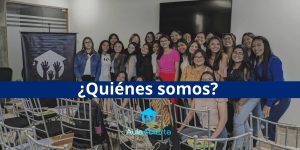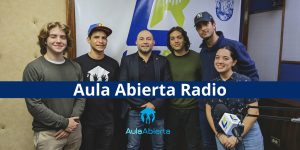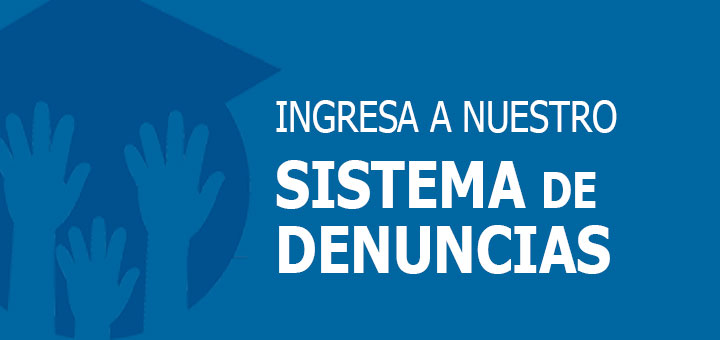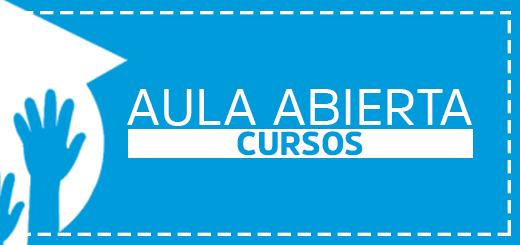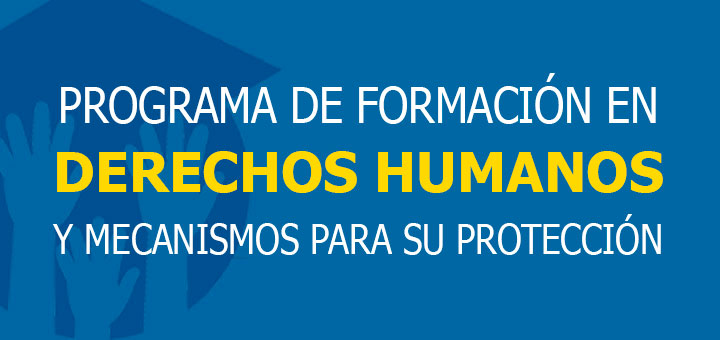COMUNICADO NACIONES UNIDAS Venezuela debe permitir la protesta pacífica e investigar la muerte de manifestantes
Venezuela debe permitir la protesta pacífica e investigar la muerte de manifestantes, dicen expertos de la ONU
GINEBRA (28 de abril de 2017) – El Gobierno de Venezuela debe facilitar las protestas pacíficas e investigar debidamente la muerte de al menos 25 personas en las manifestaciones recientes, señaló hoy un grupo de expertos* en derechos humanos de las Naciones Unidas.
“Estamos seriamente preocupados por las acusaciones de uso excesivo e indiscriminado de la fuerza durante las protestas, así como por las detenciones arbitrarias y las muertes”, dijeron los expertos
.
“Tales actos constituirían graves violaciones de los derechos a la vida, a no ser privado arbitrariamente de la libertad, y a las libertades de reunión pacífica y de expresión”, añadieron.
Cientos de personas también han resultado heridas y más de 850 han sido arrestadas en las protestas que comenzaron en 2015 en el contexto de la inestabilidad económica y social
.
Las manifestaciones se intensificaron luego de que el Tribunal Supremo de Justicia del país emitiera, el mes pasado, la decisión de asumir los poderes legislativos de la Asamblea Nacional controlada por la oposición. La decisión fue revertida posteriormente, pero las protestas continuaron.
“En este momento la tensión política es elevada y la opinión pública está fuertemente dividida, pero en situaciones como ésta es cuando precisamente los gobiernos deben hacer más para proteger los derechos de las personas”, subrayaron los expertos.
“El pueblo de Venezuela necesita un espacio para el diálogo pacífico y constructivo – entre sí y con sus dirigentes”.
Los expertos llamaron la atención en particular sobre la nueva medida que introdujo una respuesta militar automática a las manifestaciones. La medida, que entró en vigor este mes, conocida como el Plan Zamora, también requiere la ayuda de grupos de civiles armados y policías.
“La respuesta cada vez más militarizada es contraproducente porque sólo aumenta las tensiones y aumenta el riesgo de lesiones y muerte. Las manifestaciones pacíficas deben ser facilitadas, no tratadas como una amenaza inherente a la seguridad”, dijeron los expertos de la ONU.
“Las manifestaciones deberían ser manejadas normalmente sin recurrir a la fuerza. Cualquier uso de la fuerza debe ser estrictamente necesario y proporcional a una amenaza específica. Las manifestaciones pacíficas, en sí mismas, no son una amenaza. Institucionalizar el uso de una respuesta militarizada sugiere que el Gobierno piensa lo contrario”, recalcaron.
Los expertos señalaron que los grupos paramilitares también han hecho uso de la fuerza para suprimir las manifestaciones, uniéndose ocasionalmente a las autoridades uniformadas.
En el estado Lara, según se ha informado, los paramilitares dieron muerte a tres manifestantes. En 16 otros estados también se ha informado sobre grupos armados que provocan y acosan a los manifestantes con el apoyo de las autoridades estatales.
“El Gobierno venezolano tiene la obligación de investigar estos asesinatos y de llevar a los responsables ante la justicia”, dijeron los expertos. “Y si los grupos paramilitares cooperan efectivamente con agentes del Estado, entonces el Gobierno tiene también la obligación de llevar esos actores estatales ante la justicia”.
Los expertos en derechos humanos de la ONU criticaron la creciente criminalización de las protestas en Venezuela y el uso, por parte de agentes del Estado, medios de comunicación para estigmatizar a los manifestantes de la oposición como terroristas apoyados por el extranjero.
(*) Los expertos: la Sra. Agnès Callamard, Relatora Especial sobre ejecuciones extrajudiciales, sumarias o arbitrarias; el Sr. Maina Kiai, Relator Especial sobre la libertad de reunión pacífica y de asociación; el Sr. Michel Forst, Relator Especial sobre la situación de los defensores de los derechos humanos; y el Grupo de Trabajo sobre la Detención Arbitraria.
FIN
Los Relatores Especiales y Grupos de Trabajo forman parte de lo que se conoce como los Procedimientos Especiales del Consejo de Derechos Humanos. Los Procedimientos Especiales, el mayor órgano de expertos independientes en el sistema de la ONU para los Derechos Humanos, es el nombre general de los mecanismos de investigación y monitoreo del Consejo de Derechos Humanos para hacer frente a situaciones concretas en países o a cuestiones temáticas en todo el mundo. Los expertos de los Procedimientos Especiales trabajan de manera voluntaria; no son personal de la ONU y no perciben un salario por su labor. Son independientes de cualquier gobierno u organización y actúan a título individual.
ONU Derechos Humanos, página de país: Venezuela
Para más información y solicitudes de prensa, póngase en contacto con Marion Mondain (+41 22 91 79 540 / freeassembly@ohchr.org
Para consultas de prensa sobre otros expertos independientes de la ONU:
Xabier Celaya, Unidad de Medios (+ 41 22 917 9383 / xcelaya@ohchr.org)
Accede aquí a este comunicado de prensa
Etiqueta y comparte – Twitter: @UNHumanRights and Facebook: unitednationshumanrights
NEWS RELEASE
Venezuela must allow peaceful protests and investigate killing of demonstrators, say UN experts
GENEVA (28 April 2017) – The Government of Venezuela must facilitate peaceful protests and properly investigate the deaths of at least 25 people in recent demonstrations, say a group of United Nations human rights experts.*
“We are gravely concerned about allegations of excessive and indiscriminate use of force during the protests, as well as arbitrary detentions and killings,” the experts said.
“Any such actions would constitute serious violations of the rights to life, not to be deprived arbitrarily of liberty, to freedom of peaceful assembly and freedom of expression,” they added.
Hundreds of persons have also been injured and more than 850 people arrested in the protests, which began in 2015 against a backdrop of economic and social unrests.
The demonstrations became more intense after a ruling last month by the country’s Supreme Tribunal of Justice that it could assume the legislative powers of the opposition-controlled National Assembly. The decision was later reversed, but the protests have continued.
“Political tensions are high at the moment, and public opinion appears sharply divided, but this is precisely when governments should do most to protect people’s rights” the experts stressed.
“The people of Venezuela need space for peaceful, constructive dialogue – with each other and with their leaders.”
The experts drew particular attention to a new measure introducing an automatic military response to demonstrations. The measure, brought into effect in April 2017 and known as the Zamora Plan, also calls on groups of armed civilians and police to assist.
“The increasingly militarized response is counter-productive because it only increases tensions and heightens the risk of injury and death. Peaceful demonstrations should be facilitated, not treated as an inherent threat to security,” the UN experts said.
“Demonstrations should ordinarily be managed with no resort to force. Any use of force should be strictly necessary and proportional to a specific threat. Peaceful demonstrations, in and of themselves, are not a threat. Institutionalizing the use of a militarized response suggests that the Government thinks otherwise.”
The experts noted reports that paramilitary groups had also used force to suppress demonstrations, occasionally joining with the uniformed authorities.
In the state of Lara, paramilitaries reportedly killed three protesters. In 16 other states, there have been reports of armed groups provoking and harassing demonstrators with the support of state authorities.
“The Venezuelan Government has an obligation to investigate these killings, and to bring the perpetrators to justice,” the experts said. “And if the paramilitary groups are indeed cooperating with State agents, then the Government has an obligation to bring those State actors to justice as well.”
The UN human rights experts also criticized the increasing criminalization of protests in Venezuela and the use by Government officials of media outlets to stigmatize opposition demonstrators as foreign-supported terrorists.
(*) The experts: Ms. Agnès Callamard, Special Rapporteur on extrajudicial, summary or arbitrary executions; Maina Kiai, Special Rapporteur on freedom of peaceful assembly and of association; Mr. Michel Forst, Special Rapporteur on the situation of human rights defenders; and the Working Group on Arbitrary Detention.
ENDS
The Special Rapporteurs and Working Groups are part of what is known as the Special Procedures of the Human Rights Council. Special Procedures, the largest body of independent experts in the UN Human Rights system, is the general name of the Council’s independent fact-finding and monitoring mechanisms. Special Procedures mandate-holders are independent human rights experts appointed by the Human Rights Council to address either specific country situations or thematic issues in all parts of the world. They are not UN staff and are independent from any government or organization. They serve in their individual capacity and do not receive a salary for their work.
UN Human Rights, country page: Venezuela
For more information and media requests, please contact Marion Mondain (+41 22 91 79 540 / freeassembly@ohchr.org)
For media inquiries related to other UN independent experts:
Xabier Celaya, OHCHR Media Unit (+ 41 22 917 9383 / xcelaya@ohchr.org)
You can access this press release online
Tag and share – Twitter: @UNHumanRights and Facebook: unitednationshumanrights


